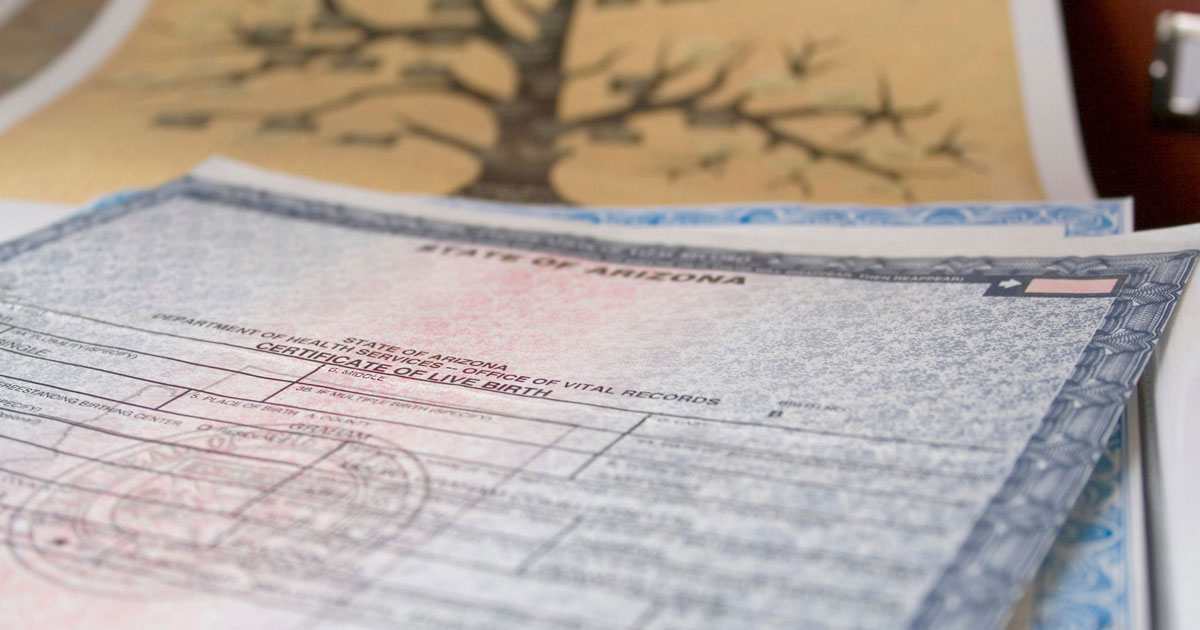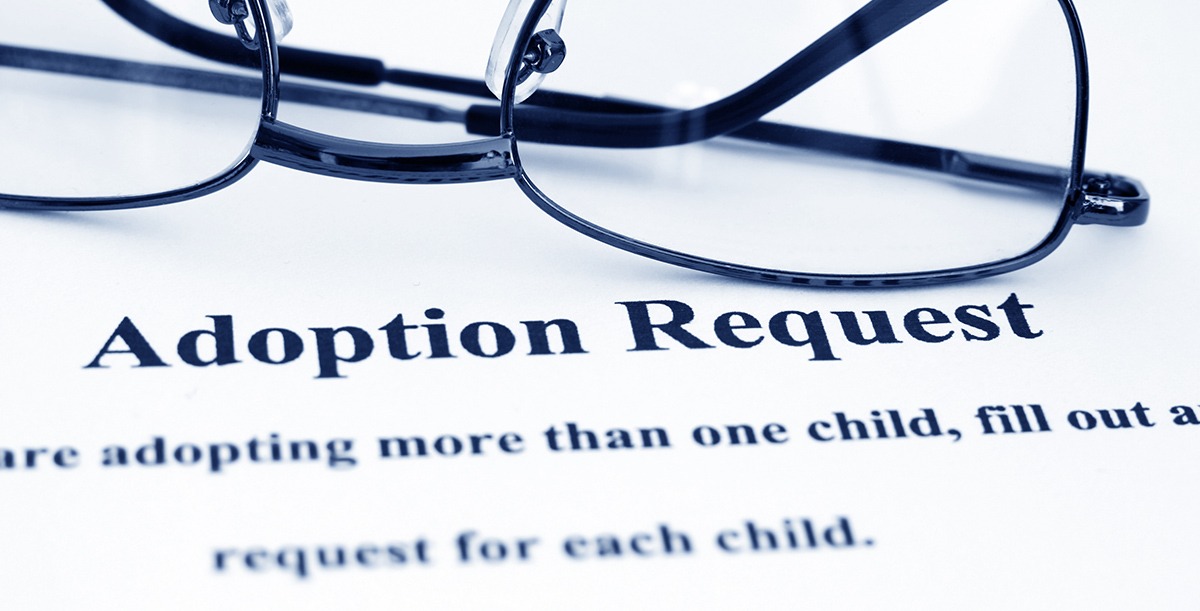Divorce can be stressful, but there are several related matters that must be addressed in a professional manner to ensure its success for all parties involved. If you have children, the children’s needs should come first, and the legal system will prioritize these over anything else. In particular, one divorce-related matter Arizona family court must contend with is child custody.
While most Arizona parents share parenting time and decision-making rights, in some instances, one parent may seek sole custody of their child. This mainly applies to cases where the other parent has a history of domestic violence, neglect, or another similar issue. If you want to file for sole custody in Arizona, you’ll need to follow a few specific steps and ensure you submit correctly completed documents in a timely manner.
It is imperative you complete custody-related documents accurately, as failure to do so could lengthen the legal process or prevent you from obtaining the sole custody you are pursuing. While you might consider hiring a family law attorney to represent you in your case, Draft My Legal Docs can draft custody paperwork and help you complete this quickly, accurately, and at a much lower cost. To help, we have put together a step-by-step guide to filing for sole custody.
Understanding Sole Custody
Parents who want to file for sole parenting time and decision-making rights must learn how to file for full custody in Arizona, which is considered the same thing. While other states refer to these aspects of custody as physical and legal custody, Arizona designates parenting time and decision-making rights.
In Arizona, there are no circumstances where one parent is favored over the other. Most of the time, the court prefers that both parents should parent and make decisions for their children, meaning both parents share responsibility for their children. However, this could be problematic for some divorced couples, especially if one parent is not capable of upholding such a responsibility. For this reason, some people never consider how to file for joint custody in Arizona, as they feel full custody is more appropriate.
Depending on your situation, sole custody may be appropriate. If your soon-to-be-ex-spouse has a criminal past, abuses drugs or alcohol, or has a pattern of domestic violence, the court may grant you both sole parenting time and decision-making rights. However, it will be necessary to prove to the court that you deserve sole custody. Once you’ve presented your case, the court can decide what the best interests of the child are and make their decision to support those interests.
How To File for Full Custody in Arizona

Not every step of our following guide will apply to you, depending on your scenario. However, we’d like to outline the process for filing for sole parenting time and decision-making rights so you can be prepared when the time comes.
Complete and file the Required Paperwork
The beginning of this process can be tedious, but it’s a necessary step to take. You must complete various required documents and file them so the court can begin evaluating your case.
These forms are contained in a packet known as a Petition to Establish Legal Decision-Making, Parenting Time and Child Support and include:
- Sensitive Data Cover Sheet with Children
- Summons to Respond or Appear in Court.
- Petitions to Establish Paternity, Request Child Support, Evaluate Child Custody, and more
- Notice of Appearance
You are also required to submit a fee to file this paperwork, currently around $200. This depends on the county you file in.
Serve Your Papers
You must notify the other parent about your sole custody case by officially serving them copies of your filed paperwork. One of the best ways to do this is by using certified mail with restricted delivery and a return receipt. This costs somewhere between ten and fifteen dollars, depending on how many documents are involved.
If the other party does not sign for the certified mail within 25 days, you’ll likely need to hire a process server to help. A process server will officially serve the documents to the other party and typically costs between $75 and $100, depending on what work has to be done to find the person. If you cannot serve your papers after attempting every possible solution, you can try asking your court for alternate methods, including service by publication, county sheriff, and more.
This process can sometimes be frustrating, especially if the other parent is uncooperative. No matter your situation, we can help you draft your documents and find the most effective way of serving your documents.
Attend Parenting Classes

Every Arizona parent who files for sole custody is responsible for attending parenting classes as required by the state. Once the respondent has been served the documents, you must take a certified parenting course within 45 days. This costs $50, and you can either schedule your course online or by calling Family Court Conciliation Services.
Wait for a Response
After you’ve served the other parent their documents, they have 20 days to respond if they are in-state or 30 days if out-of-state. This does not include the day that the other party was served, but it does include holidays and weekends. However, if the last day of this period falls on a weekend or holiday, their last day is considered the next business day.
Request a Default Judgment
It can be distressing when the other party doesn’t respond in a timely manner or at all. Fortunately, there are regulations in place that keep your case moving despite a failure to respond.
If the other party doesn’t respond at all after being served, you can file for a default judgment. This process requires another form we can draft for you. The form requests that the court begin their default proceedings as the other party has failed to respond. The other party will then receive a ten-day grace period, which is their last chance to respond without facing penalties. If they still refuse to respond, you can file a final request for default judgment alongside a default decree.
As long as the sole custody arrangement you initially asked for is reasonable, the judge is likely to grant it by default. However, the judge won’t immediately sign off on your petition, as there is a 90-day waiting period.
Wait to Submit a Consent Decree
If you and the respondent agree on the child custody arrangements after filing your initial paperwork, you must then wait to file a consent decree that you’ll both sign. You’ll have to wait 60 days after the date you serve the papers, as well as the time it takes for the judge to sign the decree. Even if both parties agree to sole custody, you may still have to attend a court hearing over the matter, but this is up to the judge. While the law technically states that you must go to a court hearing if there are children involved, judges may not ask you to do this.
Attend Cour
If the other party responds to the petition and either agrees or requests an alternative solution, the case will be referred to the assigned judge’s division. The judge’s assistant then organizes a preliminary hearing, also called a Resolution Management Conference. This meeting allows a judge to hear from both sides regarding the petition’s terms. If any agreements have been made, the judge will ask you to elaborate before finalizing a decree. If there are still terms to be addressed, you may be referred to the Conciliation Court, where a mediator is brought in to help sort out custody matters.
If mediation is ineffective or a full agreement isn’t created, the court will set a hearing date for you to attend. It is not recommended that you attend on your own, as a lawyer can help you navigate this tricky process. You’ll also need to provide evidence supporting your claim that you should have sole custody.
You’ll need evidence to demonstrate:
- Your child’s needs and best interests
- Documentation of any abusive behavior, neglect, or substance abuse, including photos, videos, police reports, and more
- Documentation of any violence or criminal behavior
Why Use Draft My Legal Docs?
As you can see, the process for filing for full custody in Arizona requires several carefully drafted legal documents. Each petition should be free of errors and submitted on time and in full. If documentation is inadequate, poorly completed, or late, your case will take longer to complete. Like anything involving the Arizona legal system, it’s risky to navigate this process on your own.
Draft My Legal Docs is a legal document preparation service operated by skilled Arizona family attorneys. Because every case is unique, attention to thorough detail is crucial, especially when it comes to matters such as divorce and child custody. Our family law services can help you complete all the documents you need for your case. Or, we can determine which documents you need after you fill out our questionnaire.
File For Sole Custody in Arizona

The legal system in Arizona can be complex, especially when it comes to family court cases involving children. Matters of custody affect all aspects of a child’s life, including where they live, attend school, their religious upbringing, their healthcare, their physical and mental health, and even their safety. If you believe that having sole custody of your children is imperative to fulfilling their best interests, filing for sole parenting time and decision-making rights is a critical step.
Begin by filing the required documents with the help of Draft My Legal Docs. You’ll ensure that each document is filed in full, on-time, and in accordance with Arizona regulations. then you’ll need to file the right documents with the right information. Visit our divorce and child custody document section for more information, or contact us directly with any questions or concerns you may have.

Jonathan Roeder is one of the founding partners of The Valley Law Group. He is an Arizona native who has dedicated his life and career to the service of others. After graduating salutatorian of his high school class, Jonathan attended beautiful and prestigious Pepperdine University, where he majored in Political Science. During his tenure at Pepperdine University, his passion for helping others grew after securing a clinical position with a residential treatment center for juveniles with substance addictions. Post-graduation, Jonathan returned to Arizona and served as a residential manager for mentally and physically disabled homes.



















